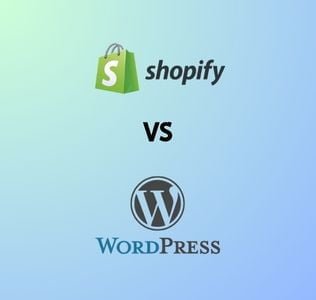Shopify vs. WooCommerce: A Comprehensive Guide for E-commerce Success
In the digital age, selecting the right e-commerce platform is pivotal for business success. With Shopify and WooCommerce leading the charge, powering over half of the online stores worldwide, the decision between the two can shape the future of any e-commerce venture. This guide aims to dissect the features, benefits, and considerations of Shopify and WooCommerce, providing a deep dive into what makes each platform unique and how they cater to different business needs.
1. An Introduction to Shopify and WooCommerce
Shopify, a comprehensive e-commerce service, offers a robust platform for businesses to sell online with an array of features designed to enhance customer engagement and retention. It’s a one-stop-shop solution, from hosting to security, catering to merchants aiming for a seamless online selling experience. WooCommerce, on the other hand, is a powerful plugin for WordPress, transforming any website into a fully functional online store. As an open-source solution, it offers unparalleled customization, making it a favorite among businesses seeking flexibility without a monthly fee.
2. Usability and Dashboard Experience
The ease of navigation and management through a platform’s dashboard is crucial for day-to-day operations. Shopify excels with its user-friendly interface, presenting key metrics and store performance at a glance, making it accessible even to novices. WooCommerce, while offering comprehensive features, requires familiarity with both WordPress and WooCommerce, presenting a steeper learning curve for managing the store.
3. Store Design and Customization
When it comes to building an online store, both platforms offer robust design options. Shopify provides a wide range of attractive themes and a user-friendly editor, facilitating a quick setup. WooCommerce offers extensive design flexibility through WordPress, catering to those willing to invest time in customization.
4. Content Management Capabilities
Content is king in e-commerce, and both platforms approach content management differently. Shopify’s integrated CMS allows for easy content updates, while WooCommerce leverages WordPress’s powerful content capabilities, offering more depth for those requiring extensive content management.
5. E-commerce and Sales Features
Both platforms are equipped with essential e-commerce features like inventory management and customer segmentation. Shopify shines with its built-in tools for abandoned cart recovery and multi-channel selling, providing a more out-of-the-box solution. WooCommerce, with its extensive plugin ecosystem, allows for a high degree of customization but may require additional investments for similar functionality.
6. Extensions and Integrations
The ability to extend your store’s functionality through plugins or apps can significantly impact your e-commerce success. Shopify’s curated app store ensures quality and security, whereas WooCommerce’s open-source nature offers a vast array of plugins, demanding more diligence in selection to maintain site performance and security.
7. Scalability and Growth
Scalability is where Shopify and WooCommerce diverge significantly. Shopify’s hosted solution simplifies scaling, offering various plans to accommodate growth. WooCommerce provides limitless scalability through WordPress but requires more technical oversight to manage hosting and performance as your store grows.
8. SEO and Marketing Tools
Both platforms offer strong SEO capabilities, yet their approaches differ. Shopify provides user-friendly SEO features built into the platform, making it easier for those without technical SEO knowledge. WooCommerce, with WordPress’s robust SEO plugins, offers more advanced SEO customization, appealing to those with the expertise to leverage it.
9. Security and Compliance
Security is non-negotiable in e-commerce. Shopify’s hosted solution includes comprehensive security measures, simplifying PCI compliance and data protection. WooCommerce requires a proactive approach, with site owners responsible for security and compliance, necessitating additional effort to ensure customer data protection.
10. Customer Support and Community
The level of support can be a deciding factor for many businesses. Shopify offers 24/7 customer support, providing peace of mind for merchants. WooCommerce relies on community support and resources, suitable for those comfortable navigating forums and DIY solutions.
Conclusion: Navigating the Choice Between Shopify and WooCommerce
The choice between Shopify and WooCommerce boils down to your business needs, technical expertise, and growth aspirations. Shopify stands out for businesses seeking a comprehensive, user-friendly platform with robust support and scalability. WooCommerce appeals to those desiring flexibility, customization, and control over their online presence, provided they have the technical know-how or resources to manage it.
Both platforms have proven their worth in the e-commerce realm. Your decision should align with your business model, operational capacity, and long-term vision, ensuring that your chosen platform becomes a catalyst for growth and success in the bustling online marketplace.


